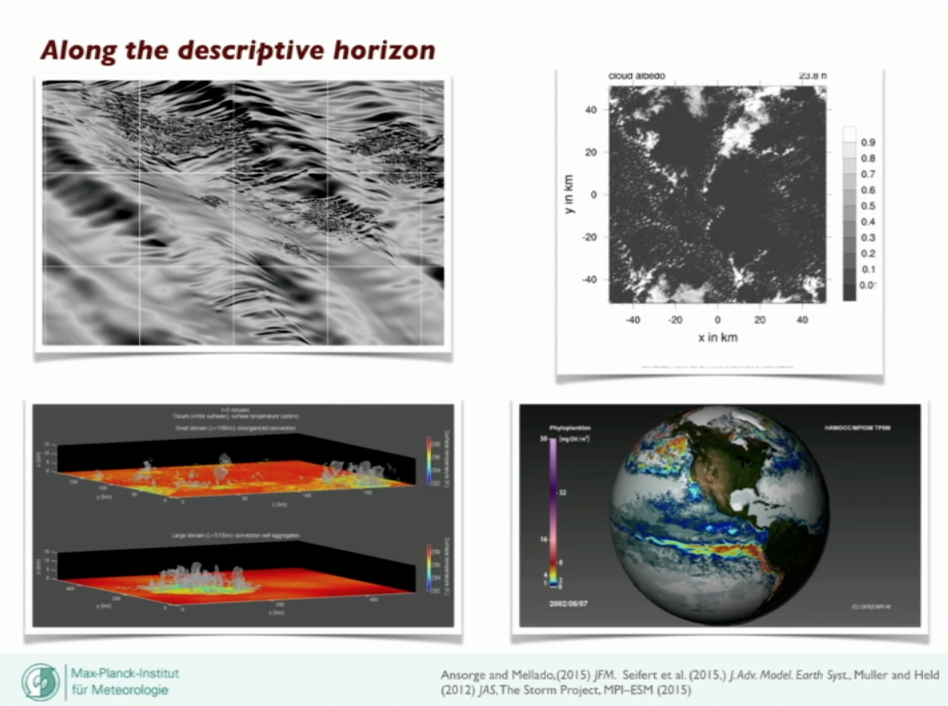Video: The Great Leap, Bjorn Stevens (Max-Planck-Institute for Meteorology, Germany)
Recording of a plenary presentation during the PASC15 Conference. www.pasc15.org
Abstract
Increasing computational power and advances in algorithms have made it possible to resolve an ever increasing fraction of the scales of atmospheric motion. While it remains inconceivable to resolve all the relevant scales of motion we are currently in the midst of a great leap across a range of scales that have posed some of the greatest challenges to climate science over the past sixty years. This leap is bringing wholly new insights into the structure of the climate system on both ends of the spectrum of atmospheric motions.
Biography
Bjorn Stevens’s research blends modeling, theory and field work to understand the role of clouds and moist convection on the climate system. Stevens has made pioneering contributions to our understanding of how mixing and microphysical processes influence both cloud structure and its susceptibility to changes in the environment. Stevens has contributed more than 130 scholarly articles to the peer reviewed literature and received many honors, including the Clarence Leroy Meisinger Award of the American Meteorological Society for “pioneering advances in understanding and modeling of cloud-topped boundary layer”. He currently co-leads the World Climate Research Programme?s Grand Challenge on Clouds, Circulation and Climate Sensitivity.
Chair: Christoph Schär (ETH Zurich, Switzerland)

